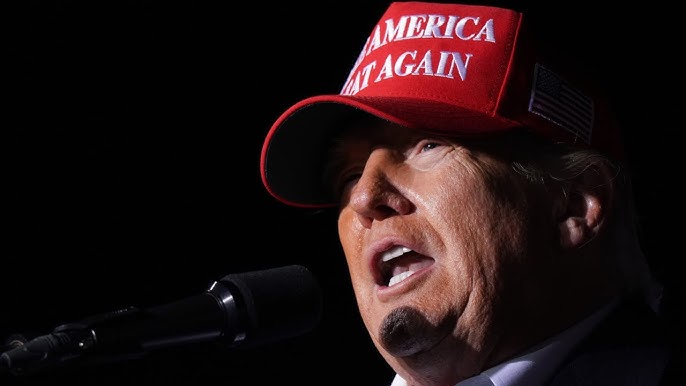DONALD TRUMP’S return to the US presidency casts an uncertain shadow over the UK, potentially leading to economic shocks that could burden British households with higher costs, lower growth, and less job security. His policy unpredictability and “America First” doctrine spell challenges for UK businesses, while his strong-willed approach to trade and foreign policy could drive a wedge between the two countries.
TRADE TENSIONS COULD COST UK EXPORTERS
Trump’s protectionist stance has reignited concerns about tariffs, which could cut deep into the UK economy. The US is Britain’s largest export market, receiving around 25% of all UK-manufactured exports. Proposed tariffs of up to 10% on imports to the US would affect major British exporters such as Rolls Royce and BAE Systems, impacting an estimated £56 billion in trade. If enacted, such tariffs could push costs higher, threatening thousands of jobs in sectors dependent on American demand.
A STRAINED UK-US RELATIONSHIP
While Prime Minister Keir Starmer and Foreign Secretary David Lammy have made diplomatic overtures to Trump, attending dinners and working closely with Trump’s allies, challenges in the relationship remain evident. Starmer’s reserved style contrasts with Trump’s brash manner, raising questions about how compatible their leadership styles are. This uncertainty, highlighted by one diplomat’s remark that Trump “doesn’t give a stuff” about UK relations, suggests a bumpy road ahead.
Diplomats have tirelessly built relationships with Trump’s inner circle, including former Secretary of State Mike Pompeo and Trump’s likely national security adviser, Elbridge Colby. However, Trump’s mercurial nature, marked by unpredictable social media outbursts and contentious negotiations, may test these connections. As Lammy put it, relations with Trump are likely to be “bumpy, noisy, and transactional.”
ECONOMIC FALLOUT AND SLOWER GROWTH
The potential for UK economic slowdown under Trump’s policies is profound. Economists from the National Institute of Economic and Social Research (NIESR) predict UK growth will be halved if Trump enforces his proposed tariffs. Without tariffs, the UK could expect moderate growth of around 1.2% next year; however, this figure could drop as low as 0.4% should the trade restrictions come into force. Coupled with rising inflation, this could lead to diminished purchasing power for households already grappling with a cost-of-living crisis.
CURRENCY VOLATILITY AND JOB THREATS
Trump’s victory has already weakened the pound, with the GBP/USD exchange rate falling sharply as results came in. Investors are wary of increased tariffs and Trump’s isolationist policies, both of which could stoke currency volatility and strain the UK economy. A weakened pound also drives up the cost of imports, which affects consumers directly through higher prices for everyday goods.
The potential loss of thousands of jobs in sectors heavily reliant on US trade adds to the bleak outlook. Automotive manufacturing, for instance, could be heavily impacted by Trump’s threat of a 100% tariff on imported cars. Companies like Jaguar Land Rover, whose Land Rover Defender was one of the UK’s top exports to the US, may face cutbacks if tariffs make exports uncompetitive.
UNCERTAIN INVESTMENT ENVIRONMENT
The UK’s global-facing stock market may also suffer. Companies in the FTSE 100 and FTSE 250, which derive significant profits from international operations, could experience volatility as Trump’s policies introduce uncertainty into transatlantic trade. Such uncertainty could lead investors to shy away from the UK market, diminishing capital inflows and further affecting economic growth.
SHIFTS IN GLOBAL PRIORITIES
Beyond economic pressures, Trump’s foreign policy outlook could exacerbate the UK’s security challenges. Trump’s “America First” rhetoric and emphasis on Asia over Europe may leave European allies, including the UK, less confident about US support for initiatives like defending Ukraine. While the UK has publicly aligned with Trump’s view that Europe should shoulder more of its defense costs, there are fears that a US pivot to Asia could weaken the cohesion of NATO and reduce military backing for Europe.
Lammy has attempted to foster an understanding of Trump’s instincts, acknowledging his focus on American interests and recognition of Asia’s growing influence. However, as the UK looks toward cooperation on issues like Ukraine, this alignment may prove insufficient in securing the support needed to address shared security concerns.
BRITISH FAMILIES TO SHOULDER THE COST
For British families, the impact of a Trump presidency could hit close to home. With increased tariffs potentially driving up inflation by 3-4%, the Bank of England may feel compelled to raise interest rates by as much as 2-3% in response. For households already feeling the pinch from rising prices, this could lead to higher mortgage costs, increased borrowing rates, and a tougher job market, further squeezing living standards.
Though the UK government has prepared for Trump’s return, the effectiveness of these plans remains to be seen. As Britain braces for another unpredictable chapter with Trump at the helm, citizens may face a “bumpy, noisy, and transactional” relationship that could reshape the economy, impacting everything from job security to the prices at the supermarket.



